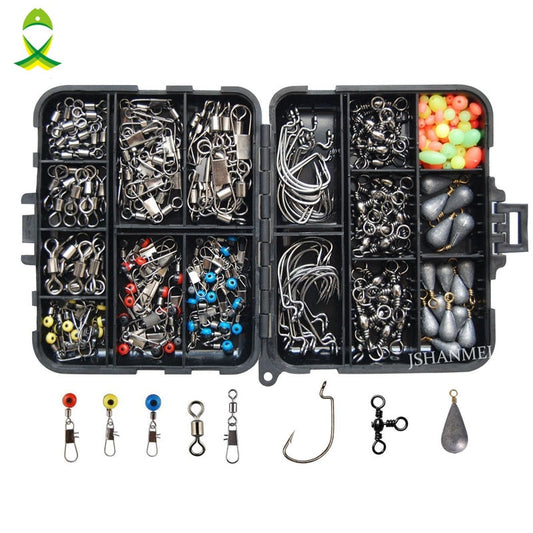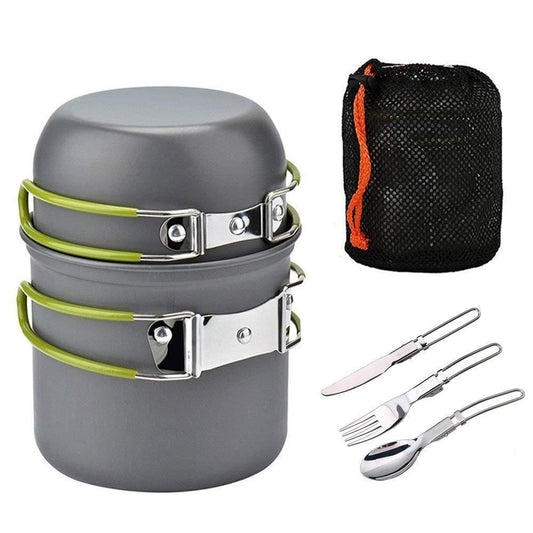
Essential 20 Foods to Dehydrate and Stock Your Pantry for Emergency Preparedness
Share
Preparing for emergencies means having a well-stocked pantry with long-lasting, nutritious foods. Dehydrating is a fantastic way to preserve food, reduce waste, and ensure you have healthy options available during power outages, natural disasters, or any unexpected situation.
In this blog, we'll explore the top 20 foods to dehydrate for emergency storage, how to dehydrate effectively at home, the best dehydrators available, and a fun recipe to try!
Dehydration removes moisture from food, inhibiting the growth of bacteria and mold that cause spoilage. It dramatically extends shelf life while preserving flavor and nutrients. Dehydrated foods are lightweight and space-efficient, making them ideal for pantry storage or on-the-go.

Health Benefits of These Dehydrated Essential Foods
🍏 Dehydrated Apples
Nutrient Preservation – Dehydrated apples retain most of their vitamins, minerals, and fiber. They are a good source of vitamin C (though reduced during drying), potassium, and antioxidants that support overall health.
High in Fiber – The drying process concentrates fiber, which supports digestion, helps regulate blood sugar, and keeps you feeling full longer—important during stressful situations.
Natural Energy Boost – The natural sugars become more concentrated, providing a quick energy source during emergencies without processed additives.
Heart Health – Apples contain flavonoids and antioxidants that support heart health and may help lower cholesterol. These benefits remain even after dehydration.
Shelf-Stable Nutrition – Fresh apples spoil quickly, but dehydrated apples can last 1–2 years when stored properly, ensuring access to fruit-based nutrition when fresh produce isn’t available.
Lightweight & Portable – Their compact form makes them easy to pack into bug-out bags, camping packs, or emergency kits without losing nutritional value.
Immune Support – Though some vitamin C is lost in dehydration, apples still provide minerals and phytonutrients that help strengthen the immune system—valuable during emergencies when health risks may increase.
Mental Well-Being – Having something sweet and naturally familiar can boost morale and reduce stress when fresh foods aren’t available.
👉 Tip for Maximum Benefit: If you make your own, pre-treat apples with lemon juice or ascorbic acid before drying to help preserve vitamin C and prevent browning. Store them in airtight containers with oxygen absorbers for the longest shelf life.
🍌 Dehydrated Bananas
Rich in Potassium – Bananas are famous for their potassium content, which supports muscle function, heart health, and fluid balance—especially important when stressed or physically active in an emergency.
Energy-Dense Snack – Dehydrating bananas concentrates their natural sugars, making them an excellent quick energy boost without processed ingredients.
Good Source of Fiber – The drying process preserves fiber, which aids digestion, helps stabilize blood sugar, and keeps you full longer.
Mood & Nerve Support – Bananas contain vitamin B6, which plays a role in brain health, nerve function, and even mood regulation—helpful during stressful situations.
Shelf-Stable & Lightweight – Unlike fresh bananas that spoil quickly, dehydrated bananas last 1–2 years when stored properly. They’re lightweight and easy to pack in bug-out bags or emergency kits.
Natural Sweetness – Dehydrated bananas satisfy sugar cravings in a healthier way, which can help maintain morale and mental well-being during tough times.
Electrolyte Balance – Besides potassium, bananas contain magnesium and small amounts of other electrolytes that help prevent cramps and support hydration.
👉 Tip for Storage: To keep them fresh, store dehydrated bananas in airtight containers with oxygen absorbers. If you like them crisp, dehydrate into “banana chips.” For softer, chewier snacks, dry them less.
🍓 Dehydrated Strawberries
High in Antioxidants – Strawberries are rich in polyphenols and vitamin C (though some vitamin C decreases during drying). These antioxidants help fight stress and inflammation, which is important during emergencies.
Good Source of Fiber – Fiber helps regulate digestion, balance blood sugar, and keep you full, which is especially helpful when food options may be limited.
Heart & Immune Support – Even dehydrated, strawberries provide manganese, folate, and plant compounds that support heart health and immune function.
Natural Sweetness with Fewer Calories – Compared to bananas, dehydrated strawberries are lower in natural sugar, making them a lighter, healthier snack that still satisfies sweet cravings.
Lightweight & Portable – Strawberries shrink down a lot when dried, making them easy to store and carry in bug-out bags, camping packs, or emergency kits.
Shelf-Stable Fruit Nutrition – Fresh strawberries spoil quickly, but when dehydrated and properly stored, they can last a year or more while still offering vitamins and minerals.
Mood Boosting – Strawberries have a bright, sweet flavor that can lift spirits and bring comfort during stressful situations.
👉 Tip for Storage: To preserve color and nutrients, pre-treat with lemon juice or ascorbic acid before drying. Store in vacuum-sealed bags or jars with oxygen absorbers to extend shelf life.
💙 Dehydrated Blueberries
Packed with Antioxidants – Blueberries are famous for their anthocyanins, which protect cells from damage, support brain health, and strengthen the immune system. These antioxidants stay active even after dehydration.
Brain & Memory Support – Studies show blueberries may help improve cognitive function and memory—valuable in stressful emergency situations where mental clarity matters.
Heart Health – Blueberries contain compounds that support healthy blood pressure and circulation, making them excellent for cardiovascular health.
Rich in Fiber – Like other dried fruits, dehydrated blueberries concentrate fiber, helping with digestion, satiety, and blood sugar balance.
Natural Energy Source – The natural sugars and carbs in blueberries provide quick energy without processed additives.
Vitamins & Minerals – Dehydrated blueberries still provide vitamin K, manganese, and small amounts of vitamin C, all of which support bone health, healing, and overall resilience.
Lightweight & Easy to Store – Dehydrated blueberries are compact, making them perfect for bug-out bags, trail mixes, or long-term pantry storage.
Morale Boost – Their sweet-tart flavor can add variety and comfort to emergency meals, keeping food fatigue at bay.
👉 Tip for Best Results: Blueberries have a waxy skin that slows drying. To speed the process and preserve nutrients, blanch them in boiling water for 30 seconds (or prick the skins with a needle) before dehydrating. Store in airtight containers with oxygen absorbers for maximum shelf life (about 1–2 years).
🍅 Dehydrated Tomatoes
Rich in Antioxidants (Lycopene & Beta-Carotene)
Tomatoes are one of the best sources of lycopene, an antioxidant linked to heart health, reduced inflammation, and even cancer protection. Dehydration actually concentrates lycopene, making dried tomatoes more potent in this nutrient than fresh ones.
Immune & Skin Support
They contain vitamins A and C, which support immune function, skin health, and healing. Some vitamin C is lost in drying, but much of the vitamin A (from beta-carotene) remains.
Mineral Content
Dehydrated tomatoes retain potassium, magnesium, and iron—key minerals that help with hydration balance, muscle function, and energy production.
Fiber for Digestion
The drying process concentrates fiber, which keeps digestion regular and supports satiety in situations where meals may be smaller.
Versatile Emergency Ingredient
Unlike sweet fruits, dried tomatoes are savory and can be used in soups, stews, sauces, pasta dishes, or eaten as tomato “chips.” This variety helps prevent food fatigue during emergencies.
Shelf-Stable & Lightweight
Fresh tomatoes spoil fast, but dehydrated tomatoes can last 1–2 years when stored in airtight containers with oxygen absorbers. They’re compact, easy to carry, and nutrient-dense.
Mood & Comfort Factor
Tomatoes are a base ingredient in many comfort foods. Having dried tomato flakes or powder on hand allows you to create familiar flavors, boosting morale in stressful times.
👉 Tip for Storage: Slice tomatoes evenly before drying. For maximum versatility, you can grind dried tomatoes into a powder to use as a base for soups, sauces, or even a quick tomato paste substitute.
🥕 Dehydrated Carrots
High in Beta-Carotene (Vitamin A Precursor)
Carrots are one of the richest sources of beta-carotene, which the body converts into vitamin A. This supports vision, immune function, and skin health. Dehydration concentrates this nutrient, so dried carrots remain a powerhouse.
Rich in Antioxidants
Along with beta-carotene, carrots contain lutein and other antioxidants that help protect against cell damage and support long-term health.
Fiber for Digestion
Dehydrated carrots retain their fiber content, which supports healthy digestion, satiety, and blood sugar regulation.
Vitamins & Minerals
Carrots also provide potassium, vitamin K, and small amounts of vitamin C (though some C is lost in drying). These support bone health, circulation, and hydration balance.
Lightweight & Shelf-Stable
Fresh carrots are heavy and spoil quickly, but dehydrated carrots shrink dramatically in size and can last up to 10 years if properly dried and stored in airtight containers with oxygen absorbers.
Versatile in Emergency Cooking
Dried carrots can be eaten as crunchy chips, rehydrated for soups and stews, or ground into powder to sneak extra nutrition into sauces, breads, or smoothies.
Morale & Comfort Food Factor
Carrots add natural sweetness and color to emergency meals, making them more appealing and helping fight food fatigue.
👉 Tip for Storage: For best results, blanch carrots before dehydrating—this preserves color, flavor, and nutrients. You can dehydrate them as slices, shredded pieces, or even carrot powder depending on how you plan to use them.
💚 Dehydrated Bell Peppers
Rich in Vitamin C
Fresh bell peppers are one of the best natural sources of vitamin C (more than oranges!). While some vitamin C is lost in drying, dehydrated peppers still retain a good portion, supporting immune health and healing.
Loaded with Antioxidants
Peppers contain carotenoids such as beta-carotene, lutein, and zeaxanthin, which support eye health, reduce inflammation, and help protect cells.
Good Source of Fiber
The fiber remains after dehydration, helping with digestion, satiety, and blood sugar balance.
Vitamins & Minerals
Dehydrated peppers keep their vitamin A (from carotenoids), vitamin K, and potassium, all of which support bone health, circulation, and hydration balance.
Lightweight & Shelf-Stable
Fresh peppers are heavy and spoil quickly. Dehydrated bell peppers are compact, long-lasting (1–2 years stored properly), and lightweight—perfect for bug-out bags or long-term storage.
Versatile for Cooking
Dried peppers rehydrate quickly and work well in soups, stews, rice, pasta, omelets, or casseroles. They can also be ground into pepper powder for flavoring.
Morale Booster
Their bright flavor and color add variety to otherwise bland meals, preventing food fatigue during extended emergency situations.
👉 Tip for Storage: Cut into uniform pieces before drying. Store in airtight containers or vacuum-sealed jars with oxygen absorbers to extend shelf life. Grinding into a powder is also a great way to save space while keeping the nutrition handy.
🧅 Dehydrated Onions
Immune System Support
Onions contain vitamin C, selenium, and phytochemicals that help strengthen immunity and fight infections. Even after dehydration, many of these compounds remain.
Anti-Inflammatory & Antibacterial Properties
The sulfur compounds in onions (like allicin) have natural antibacterial and anti-inflammatory effects, which can support overall health when medical resources may be limited.
Heart Health
Onions are linked to better cholesterol balance, lower blood pressure, and improved circulation—all important in stressful emergency situations.
Rich in Antioxidants
Onions contain quercetin and flavonoids, powerful antioxidants that help protect cells from damage and may boost endurance.
Fiber for Digestion
Dehydrated onions retain their fiber, which supports gut health, satiety, and blood sugar balance.
Lightweight & Shelf-Stable
Fresh onions are heavy, bulky, and spoil easily. Dehydrated onions shrink dramatically, store for 10+ years if properly packed, and take up very little space.
Versatile in Cooking
Dehydrated onions can be used as flakes, minced pieces, or powder. They rehydrate quickly in soups, stews, sauces, and casseroles, making them a staple for emergency cooking.
Morale Boost Through Flavor
Onions form the base of countless comfort foods. Having them on hand helps create familiar, satisfying meals that lift morale in stressful times.
👉 Tip for Storage: For maximum shelf life, dehydrate onions until they are brittle, then store in airtight jars or vacuum-sealed bags with oxygen absorbers. Onion powder is excellent for flavoring and saves even more space.
🌱 Dehydrated Green Beans
Rich in Fiber
Dehydrated green beans retain their fiber, which supports digestion, keeps you fuller longer, and helps stabilize blood sugar.
Good Source of Vitamins
They provide vitamins A, C, and K, plus some B vitamins. Vitamin A supports vision and immunity, vitamin C helps healing (though some is lost in drying), and vitamin K supports bone and blood health.
Mineral Content
Green beans contain potassium, iron, magnesium, and calcium, which aid circulation, muscle function, and bone strength—important when nutrition options are limited.
Antioxidant Support
Green beans contain flavonoids and carotenoids that protect against oxidative stress, inflammation, and support heart health.
Lightweight & Shelf-Stable
Fresh green beans spoil quickly, but dehydrated beans last up to 10 years if stored in airtight containers with oxygen absorbers. They’re compact and easy to carry.
Versatile in Cooking
Dehydrated green beans can be reconstituted for soups, stews, casseroles, or stir-fries, or eaten as crunchy “green bean chips” for a healthy snack.
Morale Boost
Having a familiar veggie side dish adds variety and freshness to emergency meals, helping prevent food fatigue.
👉 Tip for Storage: Always blanch green beans before dehydrating to preserve color, flavor, and nutrients. Dry them until brittle and store in vacuum-sealed bags or jars with oxygen absorbers for maximum shelf life.
🥒 Dehydrated Zucchini
Low-Calorie, Nutrient-Dense
Zucchini is naturally low in calories but packed with vitamins A, C, and K, plus folate and B vitamins that support energy and cell repair.
Rich in Antioxidants
Contains carotenoids (lutein and zeaxanthin) that support eye health and help fight oxidative stress.
Good Source of Minerals
Provides potassium, manganese, and magnesium, which help regulate hydration, circulation, and muscle function.
Fiber for Digestion
Even after dehydration, zucchini retains its fiber, which helps with digestion, blood sugar regulation, and feeling full.
Shelf-Stable & Lightweight
Fresh zucchini spoils quickly, but dehydrated zucchini lasts 1–2 years when stored properly. It’s lightweight and compact, making it ideal for long-term storage and bug-out bags.
Versatile in Emergency Cooking
Dehydrated zucchini can be used in soups, casseroles, stir-fries, pasta sauces, breads, or as crunchy chips if sliced thin before drying. You can also grind it into zucchini powder for sneaking nutrition into meals.
Morale Boost
Zucchini adds mild flavor and bulk to meals, helping stretch other foods and provide variety in tough situations.
👉 Tip for Storage: Slice evenly before drying. For chips, season lightly with salt, garlic, or herbs before dehydrating. Store in vacuum-sealed jars or Mylar bags with oxygen absorbers to extend shelf life.
🥔 Dehydrated Potatoes
Excellent Source of Carbohydrates
Potatoes are energy-rich, making them perfect for sustaining strength and endurance in emergency situations. Dehydrated potatoes provide a concentrated form of this energy.
Rich in Potassium
Supports heart health, fluid balance, and muscle function—essential when physical labor or stress levels are high.
Good Source of Fiber
Helps with digestion, blood sugar regulation, and satiety.
Vitamins & Minerals
Potatoes contain vitamin C (some lost in drying), B vitamins (like B6 for energy metabolism), and minerals such as magnesium and iron.
Versatility in Cooking
Dehydrated potatoes can be used in countless ways—mashed potatoes, soups, stews, casseroles, or hash browns. They can also be ground into potato flour for breads or thickening.
Shelf-Stable & Lightweight
Fresh potatoes can sprout, rot, or get moldy. Properly dehydrated potatoes last 10–15 years when stored in mylar bags or airtight jars with oxygen absorbers.
Comfort Food Factor
Potatoes are a base for many familiar, hearty meals. Having them in storage helps with morale by providing comforting, filling foods in stressful times.
👉 Tip for Storage: Always blanch potatoes before dehydrating to prevent discoloration and preserve nutrients. Slice thin for chips, dice for soups, shred for hash browns, or make potato flakes/powder for instant mashed potatoes.
🍠 Dehydrated Sweet Potatoes
Excellent Source of Beta-Carotene (Vitamin A)
Sweet potatoes are among the richest sources of beta-carotene, which converts to vitamin A in the body—supporting immune function, vision, and skin health. Dehydration concentrates this nutrient, making them even more powerful.
Rich in Fiber
Helps regulate digestion, promotes fullness, and balances blood sugar levels.
Complex Carbohydrates for Sustained Energy
Unlike refined carbs, sweet potatoes provide slow-burning energy, making them perfect for long-term stamina in emergencies.
Loaded with Vitamins & Minerals
They provide vitamin C, B6, manganese, potassium, and magnesium—all of which support healing, circulation, nerve health, and hydration balance.
Antioxidant Power
The vibrant orange color indicates high levels of antioxidants, which help protect the body from stress and inflammation.
Shelf-Stable & Lightweight
Fresh sweet potatoes can rot or sprout, but dehydrated slices, cubes, or powders can last 10–15 years if stored in mylar bags with oxygen absorbers.
Versatile Emergency Food
Dehydrated sweet potatoes can be:
- Rehydrated for soups and stews
- Mashed into a comfort food side dish
- Baked into breads or pancakes when ground into flour
- Made into crunchy sweet potato chips for snacks
Morale-Boosting Sweetness
Their natural sweetness makes them a comforting treat in stressful times, helping fight food fatigue.
👉 Tip for Storage: Slice evenly or dice before dehydrating. For flour or powder, dry thoroughly and grind finely—great for baking or thickening soups. Always store in airtight containers with oxygen absorbers for maximum shelf life.
🥬 Dehydrated Spinach
Extremely Nutrient-Dense
Spinach is rich in vitamins A, C, K, and folate, plus calcium, iron, magnesium, and potassium. Dehydration concentrates these nutrients into a very small volume.
Iron & Energy Support
Spinach is one of the best plant sources of iron, which is essential for red blood cell health and energy—critical during emergencies.
Bone & Blood Health
High levels of vitamin K support strong bones and proper blood clotting.
Antioxidant Power
Spinach contains lutein, zeaxanthin, and beta-carotene—antioxidants that support eye health, immunity, and cell protection.
Fiber for Digestion
Retains its fiber after drying, helping regulate digestion and satiety.
Lightweight & Compact
Fresh spinach shrinks dramatically when dehydrated. A full grocery bag of spinach can reduce to just a handful of flakes—perfect for long-term storage or bug-out bags.
Versatile for Cooking
Dehydrated spinach can be rehydrated for soups, casseroles, pasta, eggs, or smoothies. It can also be ground into spinach powder for sauces, breads, or green smoothies.
Shelf-Stable
Properly dried and stored spinach can last 5–10 years in Mylar bags or jars with oxygen absorbers.
Morale & Nutrition Boost
Having leafy greens in a survival situation provides both nutrition variety and a sense of freshness that boosts morale.
👉 Tip for Storage: Wash, chop, and steam-blanch spinach before dehydrating to preserve nutrients and color. Store in vacuum-sealed jars or Mylar bags. For maximum versatility, grind into a powder to use as a seasoning or nutrient booster.
🥗 Dehydrated Kale
Nutrient Powerhouse
Kale is rich in vitamins A, C, and K, along with calcium, iron, potassium, and magnesium. Drying concentrates these nutrients, making small amounts very nourishing.
Bone & Blood Health
Its high vitamin K and calcium content supports strong bones and proper blood clotting—critical in survival conditions where injuries may be more common.
Iron & Energy Support
Like spinach, kale provides iron, which supports oxygen transport and energy.
Immune System Boost
Vitamin C (partially lost in drying, but still present) plus antioxidants like beta-carotene and flavonoids strengthen immunity and help fight inflammation.
Antioxidant & Eye Health
Rich in lutein and zeaxanthin, which protect eyes from strain and support long-term vision health.
Fiber for Digestion
Retains its fiber, which aids digestion, balances blood sugar, and promotes fullness.
Shelf-Stable Superfood
Properly dehydrated kale lasts up to 5 years when stored in mylar bags or airtight jars with oxygen absorbers.
Versatile Emergency Food
- Add flakes to soups, stews, rice, or casseroles
- Grind into kale powder to boost smoothies, breads, sauces, or pasta dough
- Enjoy as crispy kale chips for a morale-boosting snack
Morale Boost Through “Freshness”
Having leafy greens in an emergency diet makes meals feel healthier, fresher, and more balanced.
👉 Tip for Storage: Wash, remove tough stems, and steam-blanch before dehydrating to lock in nutrients and color. For long-term use, grind dried kale into powder—it saves space and mixes easily into foods.
🍄 Dehydrated Mushrooms
Rich in B Vitamins
Mushrooms are one of the best plant-based sources of B vitamins (riboflavin, niacin, pantothenic acid, and B6) which support energy, brain health, and stress resilience—all vital in survival conditions.
Vitamin D (if Sun-Dried Before Dehydration)
Mushrooms are one of the only natural plant-based sources of vitamin D when exposed to sunlight. This nutrient supports bone strength, immunity, and mood regulation.
Minerals for Vital Functions
Mushrooms contain selenium, copper, potassium, and phosphorus, which help with antioxidant defense, circulation, and cellular repair.
Protein & Fiber
While not high in protein like meat, mushrooms contain more than most vegetables and add fiber for digestion and satiety.
Antioxidant Properties
Mushrooms contain compounds like ergothioneine and glutathione, powerful antioxidants that help fight cell damage and inflammation.
Lightweight & Compact
Mushrooms shrink dramatically when dehydrated, making them very space-efficient and easy to pack into bug-out bags or long-term storage.
Versatile in Cooking
- Dehydrated mushrooms can be:
- Rehydrated for soups, stews, casseroles, or stir-fries
- Ground into mushroom powder for flavoring and nutrition
- Used to create a savory broth base for meals
Shelf-Stable
Properly dried mushrooms can last up to 10 years in Mylar bags or vacuum-sealed jars with oxygen absorbers.
Morale Boost with Umami Flavor
Mushrooms add a savory depth (umami) to meals, which can make otherwise simple emergency foods taste hearty and satisfying.
👉 Tip for Storage: Slice mushrooms evenly before drying. Dry until completely crisp to avoid mold. Store in airtight containers or grind into powder for a space-saving, nutrient-dense food booster.
🧄 Dehydrated Garlic
Natural Antibacterial & Antiviral
Garlic contains allicin, a compound known for fighting bacteria, viruses, and fungi. Even in dehydrated form, garlic retains many of these protective properties—helping ward off illness when medical care may be limited.
Supports Heart Health
Garlic helps lower blood pressure, reduce cholesterol, and improve circulation—all important for maintaining health in stressful survival situations.
Boosts Immunity
Rich in antioxidants and sulfur compounds, garlic supports a stronger immune response, helping your body fight infections.
Anti-Inflammatory Properties
Dehydrated garlic still contains compounds that help reduce inflammation, supporting joint, gut, and overall health.
Nutrient Content
Garlic provides vitamin C, vitamin B6, manganese, and selenium, which aid in healing, energy production, and antioxidant defense.
Shelf-Stable & Lightweight
Fresh garlic can sprout or rot, but dehydrated garlic can last 10–15 years when stored in Mylar bags or jars with oxygen absorbers.
Versatile in Cooking
Dehydrated garlic can be used as:
- Garlic flakes or minced garlic (rehydrates easily in soups, stews, sauces)
- Garlic powder (great for seasoning, compact storage)
- Garlic chips (can be eaten as a crunchy snack or crushed into meals)
Morale & Flavor Boost
Garlic is a flavor powerhouse that can transform bland emergency meals into comforting, familiar dishes—helping fight food fatigue.
👉 Tip for Storage: Peel and slice cloves before dehydrating. Dry until brittle to prevent mold. Grind into powder for compact storage, or keep as flakes for cooking versatility.
🌿 Dehydrated Basil, Thyme & Oregano
Basil
- Antioxidant Power – Rich in flavonoids and vitamin K, supporting cell health and strong bones.
- Anti-Inflammatory – Contains eugenol, which helps reduce inflammation and pain.
- Mood Booster – Its aroma and flavor can help relieve stress and lift spirits.
Thyme
- Immune Support – Contains thymol, a natural antimicrobial that helps fight bacteria, viruses, and fungi.
- Respiratory Health – Traditionally used to ease coughs, colds, and bronchial issues.
- Antioxidant-Rich – Helps fight free radicals and strengthens immunity.
Oregano
- Natural Antibiotic – Contains carvacrol, a compound with antibacterial and antifungal effects.
- Immune & Digestive Support – Rich in vitamin K, iron, and antioxidants.
- Anti-Inflammatory – Supports gut and joint health.
✅ All Dehydrated Herbs
- Nutrient Preservation – While some delicate compounds fade, most of their antioxidants, oils, and nutrients are preserved.
- Lightweight & Compact – Herbs dry down to almost nothing, taking up very little space—perfect for bug-out bags or long-term storage.
- Shelf Life – Properly dried and stored herbs can last 3–5 years, longer if vacuum sealed in Mylar bags with oxygen absorbers.
- Flavor & Morale Boost – Herbs turn bland survival foods into comforting meals, which greatly boosts morale.
- Medicinal Uses – Many herbs double as natural remedies for colds, digestion, infections, and stress.
👉 Tips for Storage:
- Dry herbs whole when possible (leaves on stems), then crumble into jars or bags once crisp.
- Store in airtight glass jars or Mylar bags away from light and heat.
- For compact use, grind into powders to make your own herbal spice blends.
🥩 Dehydrated Beef Jerky
-
High in Protein
Beef jerky is a concentrated source of protein, which supports muscle repair, immune function, and energy—essential for survival situations. -
Rich in Iron & Zinc
Provides heme iron (easily absorbed), which prevents fatigue and supports blood health. Zinc boosts immunity and healing. -
B Vitamins for Energy
Jerky is loaded with B vitamins, especially B12, which supports brain health, nervous system function, and energy production. -
Long Shelf Life
Properly dried and stored beef jerky can last 1–2 years (longer if vacuum-sealed with oxygen absorbers and kept cool). -
Lightweight & Portable
Jerky is compact and easy to carry in bug-out bags, hiking packs, or emergency kits. -
Satisfying & Morale Boosting
Chewy, savory jerky is a satisfying snack that keeps hunger away and provides comfort during stressful times. -
Low Maintenance
No cooking required—jerky can be eaten straight from storage, which is valuable when fuel or cooking tools are limited.
✅ Tips for Making & Storing Beef Jerky
- Lean cuts only – Use top round, bottom round, or flank steak. Fat can spoil.
- Slice thin & evenly – ¼-inch slices are ideal.
- Marinate for flavor & preservation – Salt, soy sauce, Worcestershire, garlic, onion, and spices add taste and antibacterial properties.
- Dehydrate thoroughly – Jerky should bend and crack but not snap.
- Storage – Vacuum seal in Mylar bags with oxygen absorbers. Store in a cool, dark place. For extra long shelf life, keep in the freezer.
💡 Pro Tip: You can also make ground beef jerky (extruded through a jerky gun). It’s easier to chew and rehydrates quickly for stews, soups, or rice dishes.
🐓 Dehydrated Chicken Strips
Lean Source of Protein
Chicken is high in protein but lower in fat than beef, making it ideal for building and repairing muscles without excess calories.
B Vitamins for Energy
Rich in B3 (niacin), B6, and B12, which support metabolism, brain function, and energy production.
Essential Minerals
Provides phosphorus, selenium, and zinc—important for bone strength, thyroid health, and immunity.
Lightweight & Easy to Carry
Dehydrated chicken strips weigh very little, making them perfect for bug-out bags or hiking packs.
Shelf Stability
Properly dried and stored, dehydrated chicken can last 1–2 years (vacuum-sealed with oxygen absorbers, kept cool and dry).
Versatility in Cooking
- Eaten as-is for a chewy snack
- Rehydrated in soups, stews, or casseroles
- Crumbled into rice, pasta, or beans for added protein
Quick Rehydration
Dried chicken rehydrates faster than beef jerky, which is valuable when fuel and water are limited.
✅ Tips for Making & Storing Dried Chicken Strips
- Use lean breast or tenderloin cuts – Remove all visible fat (fat goes rancid quickly).
- Precook first – Unlike beef jerky, poultry should be cooked to at least 165°F before dehydrating to ensure safety.
- Slice thin and even – Around ¼ inch works best for quick drying and rehydration.
- Season lightly – Salt, garlic, onion, or broth-based marinades add flavor and preservation.
- Dehydrate until brittle – Chicken should snap when bent, not feel rubbery.
- Storage – Vacuum seal in Mylar bags with oxygen absorbers. Freeze for maximum shelf life if possible.
💡 Pro Tip: Dehydrated chicken is excellent for making a quick survival stew—just toss in dried chicken, carrots, onions, and seasonings, then simmer until rehydrated.
🌱 Dehydrated Lentils & Cooked Beans
Plant-Based Protein
Both lentils and beans are excellent sources of protein—critical for energy, repair, and survival when meat isn’t available.
Rich in Fiber
Supports digestion, keeps you feeling full, and helps regulate blood sugar levels.
Complex Carbohydrates
Provide long-lasting energy instead of the crash from refined carbs.
Packed with Micronutrients
Lentils: High in iron, folate, and magnesium (important for blood, nerves, and muscle function).
Beans: Rich in potassium, zinc, and antioxidants for immune and heart health.
Shelf Stability
Dehydrated cooked beans and lentils can last 5–10 years if vacuum sealed with oxygen absorbers in Mylar bags.
Faster Meal Prep
Since you dehydrate them after cooking, they rehydrate quickly (10–20 minutes in hot water), unlike dry beans which can take hours.
Versatile in Meals
- Toss into soups, stews, or casseroles
- Mash into refried beans or lentil patties
- Add to rice, pasta, or vegetable mixes
✅ Tips for Dehydrating Lentils & Beans
- Cook first – Boil until fully cooked but not mushy. Overcooked beans can crumble too much.
- Drain & rinse well – Reduces excess starch and prevents clumping.
- Spread evenly on dehydrator trays – For beans, split them open slightly for faster drying.
- Dehydrate at 125–135°F – Until completely dry and brittle.
- Check dryness – Lentils should be hard and crunchy; beans should snap when pressed.
- Storage – Store in vacuum-sealed jars or Mylar with oxygen absorbers.
💡 Pro Tip: Make your own instant meals by combining dehydrated beans/lentils with veggies, rice, and seasonings in one jar or bag—just add boiling water and you’ve got a full, hearty meal in minutes.
Dehydrating foods is one of the smartest ways to build a long-lasting, nutritious, and versatile emergency food supply. From fruits like apples, bananas, and berries to vegetables such as carrots, tomatoes, and leafy greens, each dried item retains vital nutrients while becoming lightweight and shelf-stable.
Adding herbs like basil, thyme, and oregano not only enhances flavor but also provides natural medicinal benefits, while proteins like beef, chicken, and lentils ensure you get the energy and sustenance needed to thrive during emergencies.
By taking the time to dehydrate and properly store these foods, you’re creating a pantry that is flexible, durable, and morale-boosting—offering comfort and nourishment when fresh foods aren’t available. Whether it’s for bug-out bags, long-term storage, or simply being prepared for the unexpected, dehydrated foods are an essential part of any preparedness plan.
Start small, build gradually, and remember: every dried apple, every strip of jerky, and every herb jar brings you one step closer to self-reliance, health, and peace of mind.
Presented by Coach Trina at Dragoyle.com
























